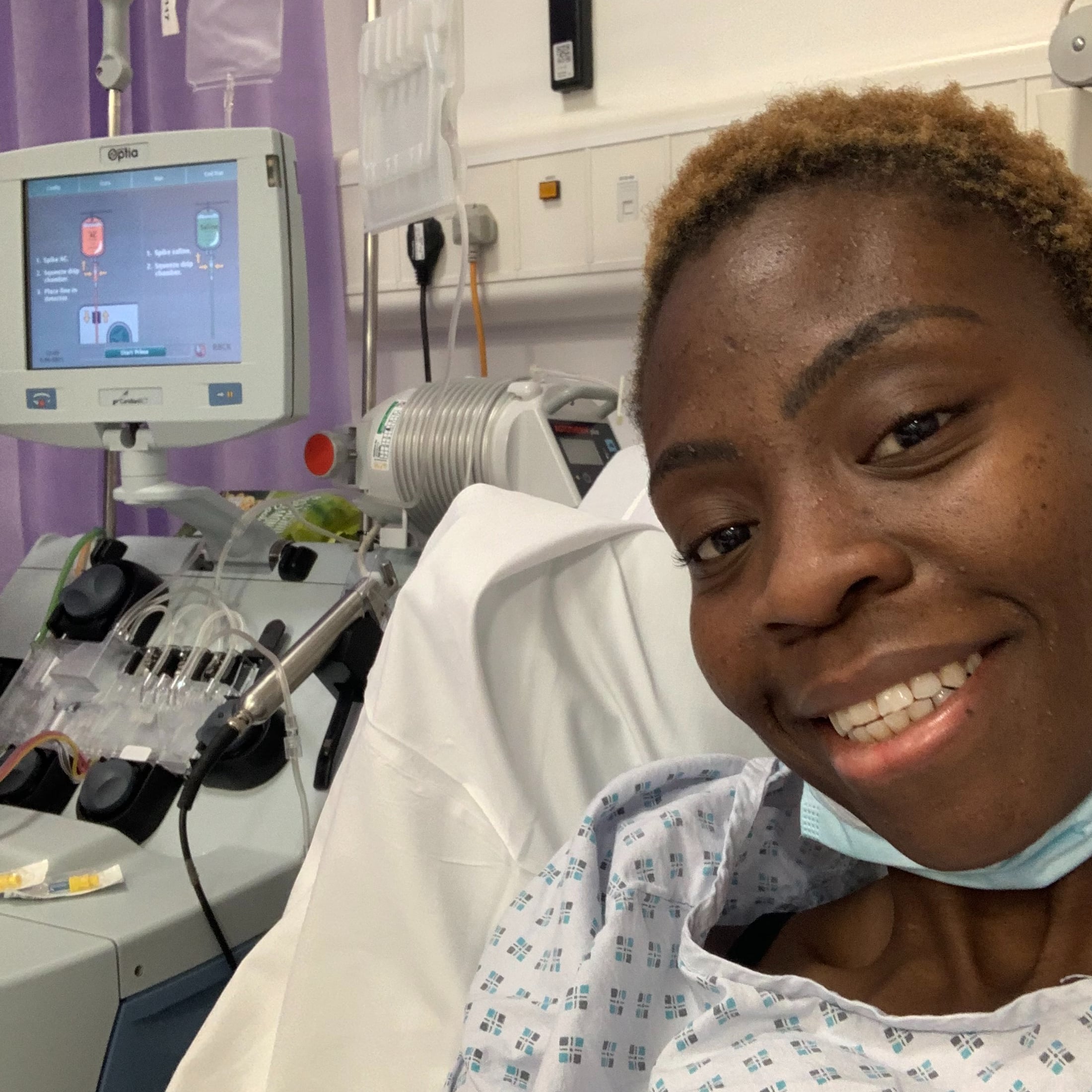Information and resources for patients
If you have an inherited anaemia, find out more information about the blood group genotyping programme and how to get involved.
How genotyping will help
There are many different blood groups. Some are well known such as the ABO system. However, there are 300 known blood groups, often known as minor blood groups.
If patients receive blood with a minor blood group that doesn’t match their own, they can develop antibodies which make it more difficult to find blood they can safely receive.
This is a real problem for people who may receive many transfusions over their lifetime.
This programme is an important step forwards as patients with these disorders will now know many more of their blood groups, making it easier to match their blood, improving the safety of blood transfusion.
How to get involved
If you have sickle cell, thalassaemia or other rate inherited anaemias, please speak to your clinical team about taking part.
Share your feedback about the programme by completing our patient survey.
You can find out more in our frequently asked questions for patients.
Who this will help

Genotyping will help people with sickle cell, like Stephanie who has developed antibodies from past blood transfusions.
She is in the complex patient group because it is now difficult to find blood which she can safely receive.
Advanced blood group testing would help her receive the best matched blood, reducing the risk of developing even more antibodies.
Stephanie said: "I know it's difficult to find well matched blood for me now.
"I have antibodies from past transfusions, better blood group matching will mean I can receive the best matched blood in the future with less chance of developing more antibodies and less chance of not being able to receive blood at all."
Resources and further information
Contact us
If you have any questions about the programme, please contact transfusion@nhsbt.nhs.uk.